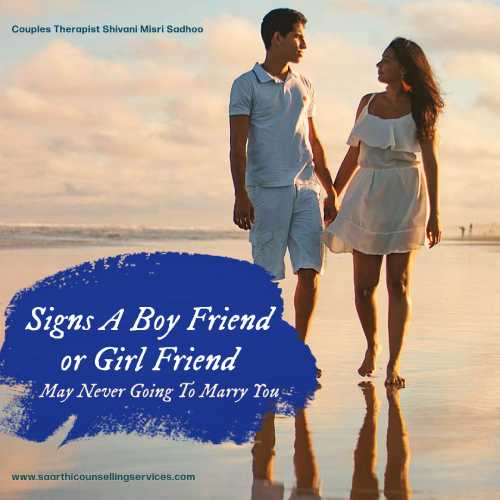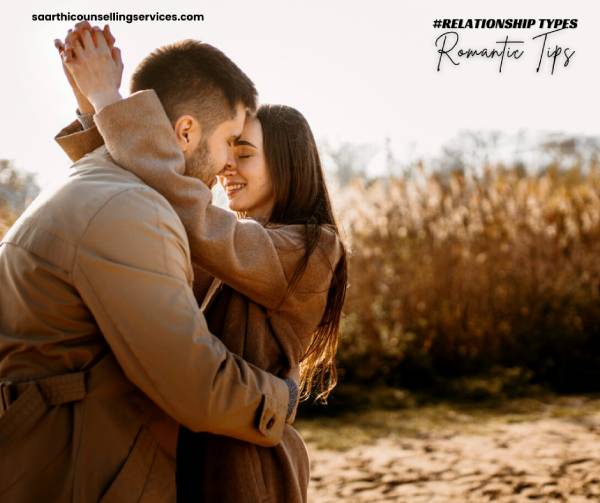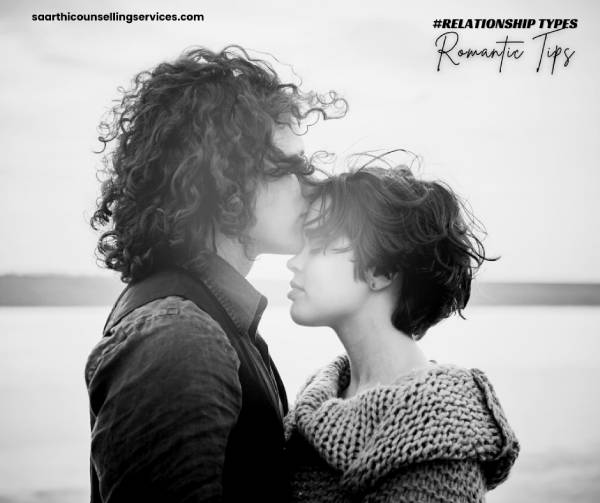You have been savouring those romantic coffee dates, indulging in long drives, and even sneaking in casual leaves from work just to create special moments with your beloved boyfriend or girlfriend, especially on their birthday. However, when the topic of marriage crosses your mind, there’s a distinct sense that your significant other isn’t quite ready for such a significant commitment or may not be inclined to take that step with you.
Are you curious to find out these tell-tale signs that indicate your significant other might not be ready for the monumental commitment of marriage?
Eminent relationship expert and marriage counselor in Delhi, Shivani Misri Sadhoo shares a few signs in this article.
Avoiding Future Plans
If your partner constantly sidesteps discussions about the future, especially on topics like settling down or long-term plans, it could indicate a lack of commitment. A genuine desire for a lifelong connection involves open conversations. If your enthusiasm for living together or dream wedding plans is met with lukewarm responses and swift subject changes, it may signal a deeper reluctance to envision a shared future.
Haven’t Met their Family
Is your partner keeping their family a mystery? A red flag in serious relationships is avoiding family introductions. A future spouse willingly integrates into each other’s families. If your significant other hesitates or delays this step, it signals uncertainty about a lifelong commitment. Avoiding family meetings suggests a lack of pride in your connection. Even if an introduction happens, reluctance may hint at future commitment issues.
Lack of Emotional Connection
In a thriving relationship, trust, loyalty, understanding, love, care, and shared emotions are crucial. If your partner refrains from opening up emotionally, it signals a reluctance to include you in their inner world, hinting at a lack of commitment. True connection involves vulnerability and closeness. When a significant other detached emotionally, it suggests a hesitancy to envision a lasting future together. Building emotional walls may signify a reluctance to see you as a lifelong partner.
Always Making Lame Excuses
Your significant other consistently postpones the idea of marriage, citing various reasons like recent conflicts with their mother or work-related stress. Each time, they claim it’s not the “right time.” Whether it’s financial stability or career achievements, the excuses keep piling up.
If someone truly desires marriage, obstacles wouldn’t hinder their commitment. Continuous justifications reveal a reluctance to take that step. Pay attention to actions, as words alone may not paint an accurate picture of their intentions.
Your Partner Isn’t Serious About the Relationship
In a relationship, actions speak louder than words. Take, for instance, when your partner hesitates to hold hands in public or introduces you with only your name, avoiding any mention of your connection. These subtle gestures may signify a reluctance to commit.
If, after months together, your significant other downplays the seriousness of your relationship, it could be a clear indication that marriage isn’t on their horizon. Such reluctance to embrace the connection publicly may reveal their hesitations about a long-term commitment.
The Discussion does not go Beyond the Proposal
After a joyous proposal, your partner might evade wedding discussions, showing reluctance to set dates or arrange venues, hinting at a hesitancy to commit. A devoted partner eagerly plans a wedding, involving loved ones, but if your significant other hesitates to confirm a date, reconsiderations about the marriage may be surfacing. Pay attention to the unspoken signals, as actions often speak louder than words in matters of the heart.
Now that you know the subtle signs of a partner’s reluctance to commit, it’s crucial to recognize the importance of open communication, emotional connection, and shared future plans in a lasting relationship. Paying attention to actions over words is key, as these indicators can help you navigate potential commitment issues and make informed decisions about your future together.




